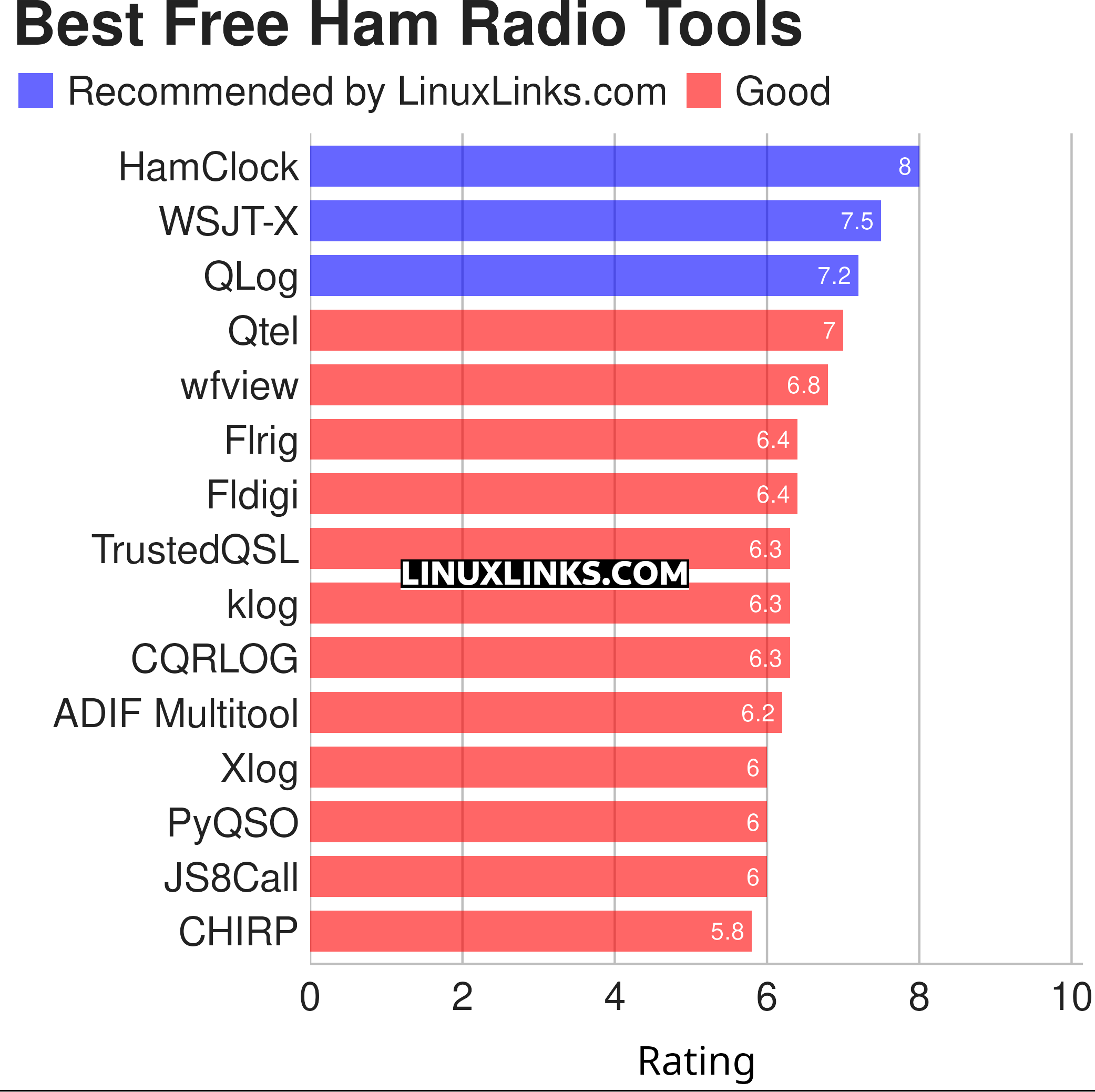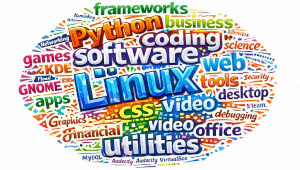Ham radio, or amateur radio, is a hobby and service that uses licensed operators to communicate with each other using designated radio frequencies for non-commercial purposes. This popular hobby and service brings people, electronics and communication together. People use ham radio to talk across town, around the world, or even into space, all without the Internet or cell phones.
It’s fun, social, educational, and can be a lifeline during times of need.
This roundup looks at the finest ham radio tools available for Linux. We include a good variety of tools including transceiver control programs, ham radio loggers, and more.
Here’s our verdict on the best free ham radio tools for Linux. Only free and open source software is eligible for inclusion.

Let’s explore the tools at hand. For each title we have compiled its own portal page, a full description with an in-depth analysis of its features, and a screenshot of the software in action.
| Ham Radio | |
|---|---|
| HamClock | Clock and world map with extra features for amateur radio |
| WSJT-X | Basic amateur radio communication using very weak signals |
| QLog | Amateur radio logbook |
| Qtel | Qt EchoLink client |
| wfview | Controls icom ham radios |
| Flrig | Transceiver control program |
| Fldigi | Modem program for most of the digital modes |
| TrustedQSL | Tools for digitally signing Amateur Radio QSO records |
| klog | General purpose ham radio DX logging support |
| CQRLOG | Advanced ham radio logger |
| ADIF Multitool | Validate, modify and convert ham radio log files |
| Xlog | Logging program for amateur radio operators |
| PyQSO | Contact logging tool for amateur radio operators |
| JS8Call | Software using the JS8 digital mode |
| CHIRP | GUI tool for programming ham radios |
 Explore our comprehensive directory of recommended free and open source software. Our carefully curated collection spans every major software category. Explore our comprehensive directory of recommended free and open source software. Our carefully curated collection spans every major software category.This directory is part of our ongoing series of informative articles for Linux enthusiasts. It features hundreds of detailed reviews, along with open source alternatives to proprietary solutions from major corporations such as Google, Microsoft, Apple, Adobe, IBM, Cisco, Oracle, and Autodesk. You’ll also find interesting projects to try, hardware coverage, free programming books and tutorials, and much more. Know a useful open source Linux program that we haven’t covered yet? Let us know by completing this form. |

